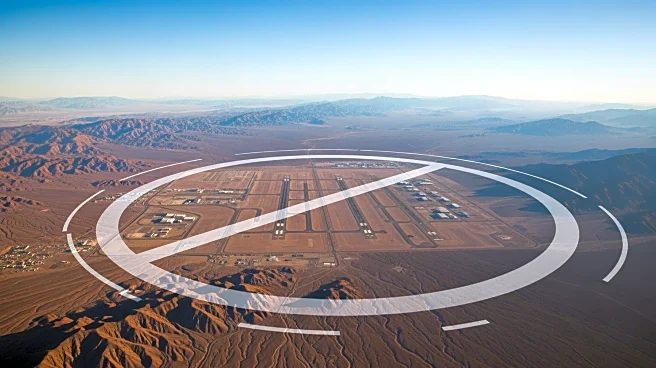What's Happening?
Jurassic World Evolution 3, the latest installment in the park-building simulator series, has been released with several quality-of-life improvements. These include automating maintenance tasks such as repairing
fences and caring for sick dinosaurs, which simplifies park management. Despite these enhancements, the game has faced criticism for not significantly advancing the immersive experience of raising dinosaurs. Players have noted that the game focuses more on park building rather than the dinosaurs themselves, with little risk or consequence for actions taken within the game. The lack of personality in dinosaur species and minimal repercussions for park management errors have been highlighted as areas needing improvement.
Why It's Important?
The release of Jurassic World Evolution 3 is significant for the gaming industry as it reflects ongoing trends in game development, where quality-of-life improvements are prioritized to enhance user experience. However, the criticism it faces underscores the challenges developers encounter in balancing gameplay mechanics with immersive storytelling. The game's reception may influence future development strategies, particularly in simulation games, where player expectations for realism and challenge are high. The feedback could lead to more innovative approaches in game design, potentially affecting how similar games are developed and marketed.
What's Next?
The developers may need to address player feedback by introducing updates or expansions that enhance the dinosaur management aspect of the game. This could involve adding more dynamic interactions between dinosaurs and park visitors, or implementing consequences for management decisions. Such changes could improve player engagement and satisfaction, potentially boosting sales and extending the game's lifecycle. Additionally, the reception of Jurassic World Evolution 3 might prompt developers to reconsider their approach to future installments, focusing on creating a more balanced and immersive experience.
Beyond the Headlines
The game's focus on park management over dinosaur interaction raises questions about the ethical implications of commodifying prehistoric creatures for entertainment. This mirrors real-world debates about the treatment of animals in captivity and the responsibilities of those managing such environments. The game's portrayal of dinosaurs as mere attractions rather than sentient beings could spark discussions about the cultural impact of media representations on public perceptions of wildlife conservation.








